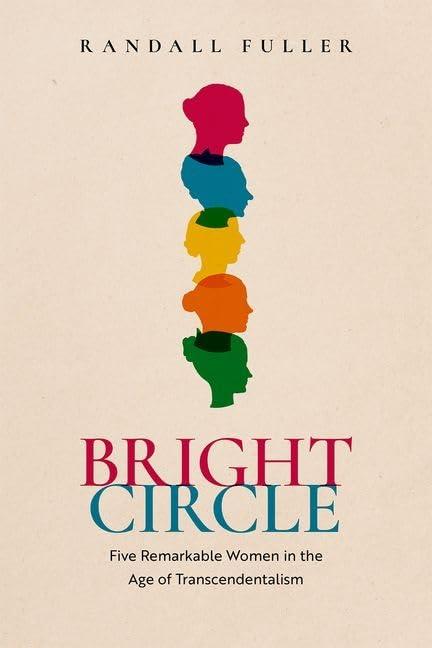However much we steel ourselves against it, the arrogant and dismissive attitude of 19th-century men toward their female contemporaries can still sting. “What then shall the woman of genius do; what can she do, and be woman still?” asked a writer in the Christian Interior in 1851. “She finds herself in possession of riches for which she never sighed nor prayed … and what shall she do with it? Was it given to her to be a curse … to separate her from her kind merely to unsex her?”
Randall Fuller’s lively, uplifting new book, Bright Circle: Five Remarkable Women in the Age of Transcendentalism, considers this so-called curse through the lives of five women: Mary Moody Emerson, Elizabeth Palmer Peabody, Sophia Peabody Hawthorne, Lydia Jackson Emerson, and Margaret Fuller (a distant relative of the author’s). The book is framed by Margaret Fuller’s famous “Conversations”—weekly opportunities for dozens of women, age 13 to 60, who convened at Elizabeth Peabody’s Boston bookstore to debate life’s deepest questions. The surviving accounts of those meetings show not unsexed, isolated creatures, but participants in boisterous, brilliant discussions that “reshaped people’s worlds” and molded the budding nation’s thought.
Fuller assigns each woman a chapter. First is Mary Moody Emerson, whose belief that human excellence was better fostered through provocation than coddling earned her both skeptical admirers and vicious detractors. With her nephew, Ralph Waldo Emerson, she shared an exhilarating curiosity about the nature of the universe and the essence of the self that bristles from every page of their decades-long correspondence. Reading the sometimes-exact overlap between her letters and the essays that made her nephew famous risks triggering a kind of incredulous rage. “We do not have an adequate term for this generative process of imitation,” Fuller admits. “Appropriation, theft, influence, homage—the words fail to convey just how much Waldo internalized Mary’s enigmatic expression, her habits of consciousness, her mode of being.” However we characterize their collaboration, it set American philosophy on its course.
The literary prodigy Elizabeth Palmer Peabody also shaped American thought. She coined the word “transcendentalism”; her translation of the Bible into contemporary language anticipated Ralph Waldo Emerson’s theorizing about the divine in Nature by a decade. She was polylingual, an educational reformer, and a literary entrepreneur. She developed a philosophy of personhood that suggested that the self was best known through others. Like Mary Moody Emerson, Elizabeth watched her ideas find fame in the words of a man: this time in the Reverend William Ellery Channing’s celebrated sermons.
